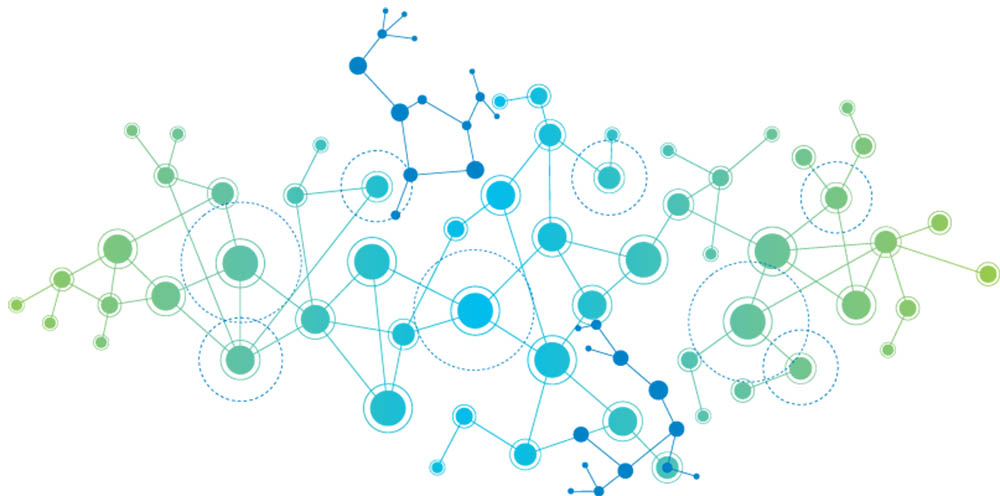Following the my last article, one of the most pertinent aspects of territorial intelligence concerns network and agglomeration economies and, in particular, the impact of so-called external effects.
In recent years, a wide variety of smart communities have been created in many regions of the country, with the support of European and national funds, for example: science and technology parks, research and development centers, technology centers, business centers, nests of companies, incubators and accelerators of startup, spaces of coworking, smart cities, a network of living labs, a national network of local development associations, a national rural network, venture capital companies, a Start Up Portugal network, an association of business angels, hubs technological and creative, in addition to many business associations with very variable geometry.
Let's think, for a moment, of the immense diffuse and dispersive effects, of dubious sustainability, originating in all these presumed intelligent communities, let's think of their weak impact of agglomeration and cohesion on low-density territories, let's think of the countless unwanted and non- intentional and we are immediately left with a bitter mouth with regard to its effectiveness, efficiency and effectiveness, in other words, its successful smartification. With a few exceptions, of course.
And why is this happening? Precisely for lacking an actor-network or a territorial curatorship that takes care of knowing and practicing that the whole is greater than the sum of its parts.
Many of the external impacts of the actions of the aforementioned entities are not monitored and articulated and, sooner or later, they end up getting lost in the diffuse mesh of industrial areas and the fragile municipal and inter-municipal business fabrics.
As for the impact and integration of external effects, it is also important to say that the economy of digital networks of the 5th and 6th generations will introduce hyperspeed and high connectivity into the economic system and this overheating will cause a new generation of external effects to emerge where the effects are counted side effects, chance interactions, stealthy behaviors, and accidental discoveries.
Altogether, dematerialization and virtualization can even transform the digital economy into a gigantic operation of dissimulation, also aiming to hide a substantial part of the externalities created, in particular the negative externalities, associated with the group of furtive behaviors, in in particular, evasion and fraud, moral hazard and free raider or stowaway passenger risk.
That said, all these risks require a permanent observation and monitoring post and that is the reason why the entire theory of external effects needs to be revised, under penalty of its golden rule, the “privatization of benefit and socialization of harm ”, becomes a recurring crime of harm to the homeland.
In summary, to reduce systemic risk, side effects and unintended effects, stealth behaviors of moral hazard and stowaways, the economy of the digital transition must take care of the following aspects:
– Reduce entropy and improve the synergy of processes and procedures in the value chains,
– Reduce linearity and improve circularity, in application of the 4R policy,
– Reduce aggressive competition and improve the means of cooperation between operators,
– Reduce the consumption of material resources and increase the consumption of immaterial resources,
– Reduce consumption of fossil fuels and increase consumption of renewable resources,
– Reduce random and stealth interactions and improve overall connectivity quality,
– Reduce self-sufficiency and improve multi-scalarity and multi-level governance,
– Reduce predation in value chains and increase collaboration between operators,
– Reduce monoactivities and improve risk management through multifunctionality,
– Reduce job insecurity and improve hiring and regulation conditions.
In short, in the shadow of high connectivity and interactivity, and without an adequate regulatory policy to strictly control external effects, we run the risk of being hostage to many furtive behaviors, hence the importance of dealing with network security issues with extreme care. and the privacy of citizens.
Final Notes
The covid 19 pandemic accelerated the digital transition, but also the relative position of actors within the framework of new smart communities and their respective value chains.
However, as we know, the collective intelligence of territories is not reduced to a simple computerization or digitization operation. The economic theory of local and regional development has, in fact, some good examples of conceptual logic and collective intelligence.
I recall some of these theoretical references: the industrial district, innovative means, endogenous resources, clusters, value chains and chains, local productive systems and arrangements, all of them, or almost all, expressing a certain specific space equation, distance and time, but also integration of internal and external effects.
Now, the technological revolution and territorial intelligence not only add to this conceptual list the digital ecosystem, networks, platforms and applications, artificial intelligence and intelligent assistants, they also greatly reduce the central place played by the space and distance variables, thus conferring at the same time, another rationality and centrality, in a specific context where linear risk gives way to circular opportunity.
Finally, the digital economy forces us to revisit the theory of external effects, for an additional reason, because the targets or victims are the same as always:
– The consumer, through monopoly or quasi-monopoly prices, concerted prices and abuses of a dominant position,
– The taxpayer, through aggressive tax planning, tax evasion or tax benefits from large technology companies,
– The worker, through the deregulation and deregulation of digital work,
– The citizen, through hypervigilance, the violation of their privacy and the abusive action of algorithms in the functioning of the so-called two-faced markets.
Finally, in order to monitor many of its positive and negative externalities, the digital transition economy will surely gain from integrating the smart communities mentioned at the beginning into the scope and scale of the city-region, through a more polycentric network of towns and cities. and circular and a mission structure that fulfills the role of territorial curatorship well.
*Happy Holidays to the reader, returning in September.
Author António Covas is a Retired Full Professor at the University of Algarve




















Comments